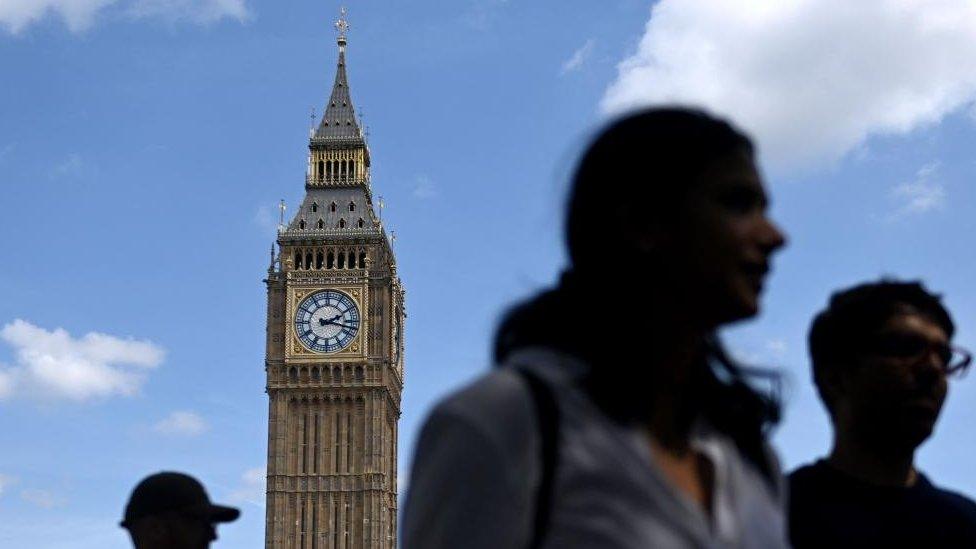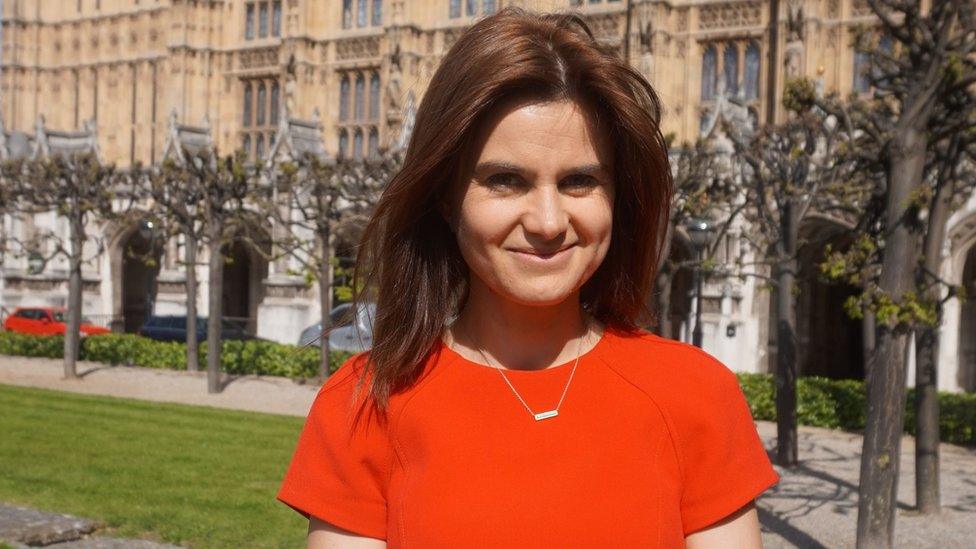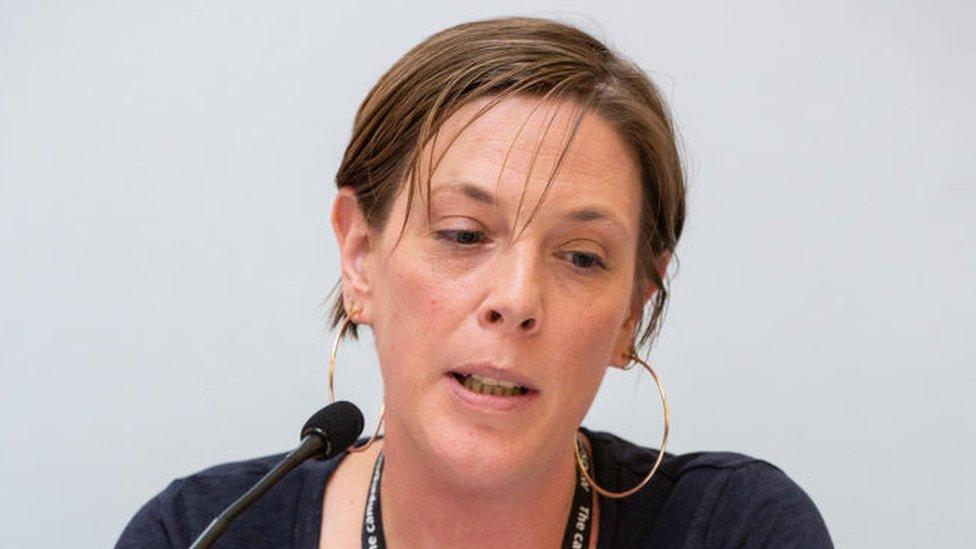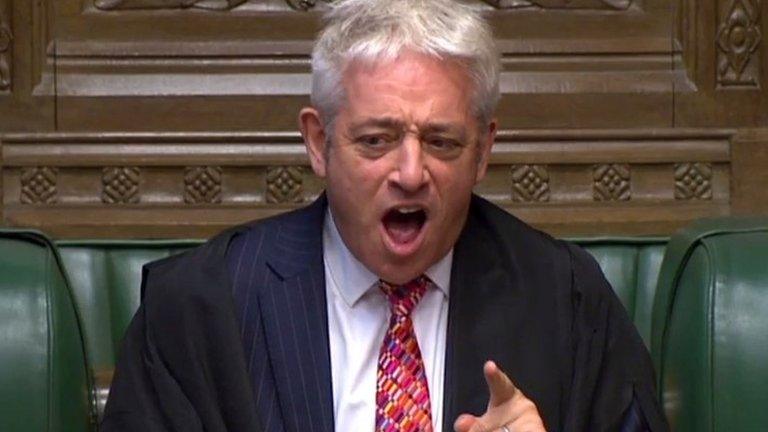Jo Cox Foundation: Abuse of politicians is a threat to democracy, report says
- Published

The report recommends mandatory lessons for school children and extra support from social media firms to tackle online abuse
The abuse and intimidation of politicians is a "significant threat to democracy", a new report has said.
The report by the Jo Cox Foundation, named after the MP murdered in 2016, says action needs to be taken to prevent elected representatives from stepping down.
It suggests social media firms should offer extra support to politicians during elections.
Research has found politicians face regular violent threats in their roles.
The Jo Cox Civility Commission highlighted research which found 90% of female members of the Scottish Parliament had feared for their safety, external and almost 43% of Welsh MPs and Senedd members had received a death threat, external.
Former home secretary Jacqui Smith, who now chairs the Jo Cox Foundation, said Parliament must act to "prevent elected representatives from stepping down and ensure a diverse and talented future pipeline of politician".
"Abuse and intimidation of elected politicians is a genuine threat to democracy in this country," Ms Smith said in a statement.
The report also highlights the case of Labour's Jess Phillips, former shadow minister for domestic violence and safeguarding, who said she had received 600 rape threats via social media in one evening.
Research published in July 2023 and mentioned in the report also found London Mayor Sadiq Khan had received more than 300,000 pieces of openly racist or racially-oriented abuse since he was first elected.
Two MPs have been murdered in the last eight years, including Ms Cox. Sir David Amess was killed while holding an MP surgery in his Southend constituency in 2021.

The Jo Cox Foundation was set up in memory of the MP who was murdered in 2016
The commission, external has made 28 recommendations it believes are needed to protect political figures while still allowing for robust debate.
They include giving teachers special training so they are able to show school children how to track down and evaluate sources of information and misinformation found online and in the media.
The report also recommended mandatory lessons on media literacy and promoting more informed and respectful debates in schools.
There is a direct correlation between the rise of social media and how easy it has become to abuse representatives, the report says.
To tackle this, the commission says social media firms must recognise the importance of politicians' democratic roles and offer quicker, better ways for councillors to report online abuse and misinformation.
During elections, platforms should provide politicians with additional help and online safety training, the report added.
Further police checks at politicians' homes and offices and the establishment of a central government-funded unit to tackle abuse are also among the recommendations.
'Downward spiral'
The report has received praise from four former prime ministers, including Sir Tony Blair who called the recommendations "a vital step" towards making politics safer.
"Robust political debate is the cornerstone of a healthy democracy and is to be encouraged," Sir Tony said.
"Yet too often, our politics is dissolving into abuse, threats, and violence that only serve to undermine the democratic process."
Gordon Brown said he hoped Ms Cox's death would be a "turning point" in the "downward spiral" in the UK's political culture.
Theresa May said "a fitting tribute" to her memory would be "to take action on abuse and intimidation, which otherwise deters people from putting themselves forward and standing for election".
Lord David Cameron, now foreign secretary, said: "The Jo Cox Foundation has led this commission to show a way forward that makes our democracy safer and civil for those who are elected to represent us."
Related topics
- Published9 November 2022

- Published27 September 2019

- Published29 September 2019
